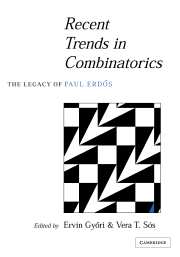Let k ⩾ 2 be an integer. We show that if s = 2 and t ⩾ 2, or s = t = 3, then the maximum possible number of edges in a C2k+1-free graph containing no induced copy of Ks,t is asymptotically equal to (t − s + 1)1/s(n/2)2−1/s except when k = s = t = 2.
This strengthens a result of Allen, Keevash, Sudakov and Verstraëte [1], and answers a question of Loh, Tait, Timmons and Zhou [14].
